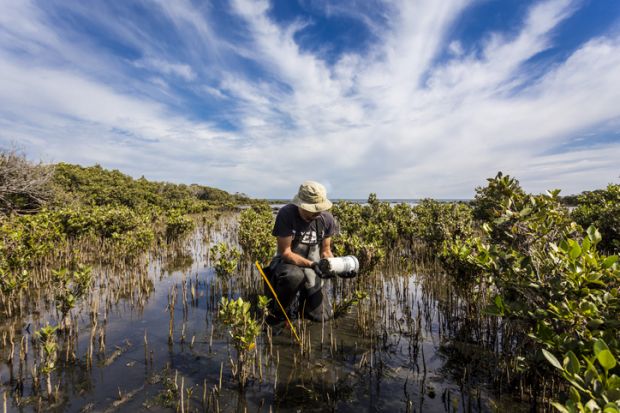Climate research can expect a more receptive political environment in Australia, and tertiary education policy may again come under the spotlight, after Scott Morrison’s conservative government was ousted in the 21 May federal election.
While many votes were still to be counted, Mr Morrison’s Liberal Party appeared to have lost around 15 of its 76 House of Representatives seats – roughly half of them to the opposition Labor party, and the other half to the Greens and a loose alliance of so-called “teal” independents.
These mostly female candidates campaigned heavily on climate change, competing mostly in traditional Liberal seats. They appeared likely to have wrested six of these electorates from the government including Kooyong, a Liberal stronghold occupied for decades by party founder Robert Menzies and most recently by deputy Liberal leader and treasurer Josh Frydenberg.
While Labor’s Anthony Albanese will become prime minister, it was unclear at the time of writing whether he would head a majority government. He may be forced to rely on the support of crossbenchers – primarily the teal independents and Greens – to give him the numbers he needs in the House of Representatives. The Greens may also hold the balance of power in the Senate.
The outcome means that Labor will face pressure to strengthen its support for climate science in government, while the Liberals face similar pressure in opposition. Sometimes considered hostile to climate science, it will need to change this perception to regain some affluent city seats that it has never previously lost.
Stephen Mayne, a transparency campaigner and former state Liberal staffer, tweeted that Labor’s “small target approach” during the election campaign would not absolve it of implementing a “big legislative agenda”, particularly around environmental issues.
Australian National University policy expert Andrew Norton said the same applied to university funding. “I think Labor will do more than it has announced,” he said. “I doubt it will leave the Job-ready Graduates student contribution system in place.
“It could change it in a budget neutral way, but that would mean increasing student contributions in the cheap courses to fund a decrease for other students. That might lead to a more phased change, such as for new students only, or additional outlays to speed it up.”
Professor Norton said the government may also undertake a major review of tertiary education, even though it had not promised to do so during the latest campaign. If so, the “trick” would lie in managing expectations.
“The commonwealth’s budget, while better than expected a year or two ago, is still in a bad way by the standards of the last 50 years,” Professor Norton said. “With many other demands on public finance it will be hard for higher education to compete. And with Labor adopting a small target approach to achieve victory, they have limited claims to a mandate to increase taxes.”
Universities were not front of mind during Mr Albanese’s victory speech, which included no mention whatsoever of education or training.
Mr Morrison’s concession speech mentioned higher education, in the context of demonstrating the government’s success in reducing unemployment. “Australians leaving school, leaving university, getting their trades, know that they have the confidence of being able to go out there and get a job,” the departing prime minister said.
Register to continue
Why register?
- Registration is free and only takes a moment
- Once registered, you can read 3 articles a month
- Sign up for our newsletter
Subscribe
Or subscribe for unlimited access to:
- Unlimited access to news, views, insights & reviews
- Digital editions
- Digital access to THE’s university and college rankings analysis
Already registered or a current subscriber? Login










